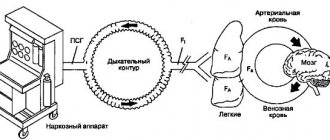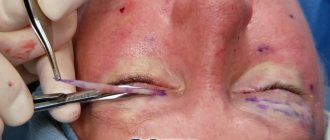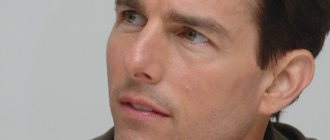Zapir Luguev: “Patient safety is above all”
Outside of Dagestan, there was an opinion about Zapir Gadzhievich Luguev as a first-class, sought-after surgeon. He practiced and taught a course in plastic surgery in Moscow for a long time. Now patients come to him from Moscow, St. Petersburg, Volgograd, Rostov, Tyumen, Stavropol, Krasnodar, Astrakhan, Chechnya, Ossetia, Ingushetia, Germany, France, Spain, England, the USA, etc.
Zapir Luguev is the author of more than 70 scientific papers and methodological recommendations, he has about 10 original inventions. Among his achievements are the invention of a soft vascular clamp, the introduction in Dagestan of more than 20 operations on the aorta and peripheral arteries, which had not previously been performed in the republic, including aorto-bicarotid bypass surgery, resection of aortic aneurysms for ruptures, operations on the carotid arteries for strokes and many other. He is the founder of microsurgery in Dagestan. Proji correspondents talked with the famous surgeon, Candidate of Medical Sciences, full member of the Society of Reconstructive, Plastic and Aesthetic Surgeons of the Russian Federation, state prize laureate, Honored Doctor of the Republic of Dagestan Zapir Luguev and learned about the opening of a new clinic, the services provided in it, the dreams and plans realized by the doctor for the future. – You were a cardiovascular surgeon, then moved into plastic surgery. What is this connected with? – Let me clarify right away, plastic surgery is complex operations on blood vessels, nerves, severed limbs, to eliminate birth defects, and not what many people mean by this concept. If we take plastic surgery as 100%, then the aesthetic part is only 15%, and 75% is reconstructive surgery, which includes neurosurgery, microsurgery, orthopedics and vascular surgery. The basis of everything is microsurgery. As my supervisor, the chief plastic surgeon of Russia, academician Nikolai Milanov, said, only a surgeon who has been trained in microsurgery can be called a plastic surgeon. And many who call themselves plastic surgeons are actually aesthetic doctors and cosmetologists. In 1991–1993, having completed clinical residency in microsurgery and cardiovascular surgery, Zapir Luguev became the first certified cardiovascular surgeon and microsurgeon in Dagestan. – After 30 years of fruitful work, you are opening your own multidisciplinary medical center. What types of services are available to patients? – In our clinic, the patient will be able to receive a complete examination. The activities of the multidisciplinary clinic will develop in the following areas: aesthetic, plastic, reconstructive, general surgery, cardiology, endocrinology, gynecology, neurology, cosmetology, clinical laboratory diagnostics, ultrasound diagnostics. There is a day hospital with 10 beds, and it is planned to launch a 24-hour hospital with 30 beds. – What equipment will you use? – Today, both public and private medical institutions have the opportunity to purchase high-quality equipment. However, only a well-trained specialist gets the most out of the device. That's why the results are so different. We purchased laboratory equipment from a Japanese manufacturer that runs on dry chemicals. It is more expensive, but it guarantees accuracy and eliminates the possibility of using expired reagents. The ultrasound machine is a new product from the American company GE Healthcare, which combines the best functions for studying the heart and blood vessels with the study of all organs. Our clinic will have two operating units and a central sterilization department that meet all modern SANPIN requirements. – Who will work on your team? – I approached the selection of personnel thoroughly, recruiting time-tested specialists with excellent professional and human qualities into the team. I worked with them in different medical centers and performed a large number of successful operations, and I am also familiar with the level of their knowledge. The center bears my name, which means I am responsible for the quality and level of services that the center provides. A doctor should think logically and not prescribe everything. After all, in the end, the patient who pays for unnecessary tests suffers. – Do you work under the MHIF system? – Our clinic offers Dagestanis high-quality services and only when they are in demand will we be able to join the Compulsory Medical Insurance system. Two months ago we had a patient from New York, a friend of hers from Germany, whom I operated on twice, advised her to contact me. This suggests that people go to the clinic for quality, and the prices correspond to it. Educated people understand that investing in their health, as well as dressing nicely, driving a nice car and living in a nice house, is normal. – As far as we know, you wanted to open an outpatient oncology branch in Dagestan. – Unfortunately, in Dagestan, oncology, traumatology and neurosurgery are not in the best condition. After communicating with Spanish colleagues, I wanted to implement their work experience in our republic. The fight against cancer in Spain is at the highest level. We discussed the issue of opening a branch of a Spanish oncology clinic in Dagestan with the Spanish Ministry of Health. An agreement was reached. However, due to the introduction of sanctions by the European Union, it was not possible to implement the plan at that time. I am planning a trip to Spain soon, negotiations on this issue will continue and I hope that we will achieve a positive result. – You have performed a large number of operations. Do you remember what your very first operation was? – I remember well my first operation for acute appendicitis; I performed it at the age of 20, as a 3rd year student. At the age of 26, he headed the surgical department near Leningrad, and at the age of 29, he supervised the department of cardiovascular surgery in Dagestan. I remember another operation more. I was 28 years old when I arrived from St. Petersburg and had already been working at the Central Hospital for two months. A patient was brought in with a torn hand; the hand was in a bag. The operation lasted 8 hours and, as it turned out, this was the first replantation of a hand in the Caucasus after its complete traumatic separation. That same year, in a children's hospital, a 9-year-old child had one kidney removed, but the inferior vena cava was damaged, there was terrible bleeding, and he could be left without a second kidney. The Central Hospital sent me there. Having prepared for the operation, I walked into the noisy operating room. They were surprised when they learned that a young vascular surgeon had come to them. In the minds of many people, a vascular surgeon is a grey-haired, 60-year-old man with an impressive appearance. The age of the doctor does not matter; he must have impeccable basic knowledge, a perfect knowledge of anatomy, physiology and pathophysiology. Experience and professional intuition layered over the years develop a good doctor, and when he also has a sense of compassion, he is already an excellent doctor. Today we suffer from the callousness, illiteracy and negligence of doctors. – How do you prepare for the operation? – Before going to bed, I analyze every day I have lived. I’m replaying the course of upcoming operations in my head. The attitude is important because I think through not only the positive outcome of the operation, but also possible complications. The main thing is that no one interferes with the schedule on this day; such unplanned meetings unsettle you. – How many operations have you performed over the years? - I never counted. Recently, a congress of plastic surgeons was held in Makhachkala, which was attended by famous Russian doctors, including microsurgeons. While preparing a report in the field of microsurgery for a speech, I remembered that over 12 years I had performed 138 operations to replant severed limbs. This is the greatest experience for one person not only in Russian, but also in European practice. – What is the most important thing in your work? – Patient safety is paramount. In any clinic where people are operated on, it is important that the premises and equipment comply with sanitary and epidemiological standards, sterility in operating rooms, the presence of intensive care units or intensive care units, and the provision of resuscitation equipment and medications, including for emergency cases. You cannot rely, hope that “maybe it will pass” and risk the patient’s life. Otherwise, how can you then live in harmony with your conscience? When preparing the center for launch, we tried to take into account everything mentioned above, which could directly or indirectly affect the safety of the patient’s life. Proji correspondents, after a tour of the center, were convinced of this for themselves. Everything in it, from the selection of medical linoleum, special Italian paint for medical centers, air filtration in the operating unit and in the center itself, to all the necessary equipment, meets the highest requirements.
The Caucasus wins the title of region with the best plastic surgeons
The capital's beauties found out that Caucasian doctors will do a facelift, with high quality, and most importantly at a favorable price, much cheaper than European clinics. And in rhinoplasty, Dagestan doctors, in general, have no equal. The demands on appearance immediately resonated with Caucasian enterprise.
Our correspondent Murad Magomedov talks about strict morals and the price of beauty.
The most famous plastic surgeon in Dagestan, Zapir Luguev, operates to the sound of a violin. The scalpel, the doctor says, should slide as masterfully as a bow in the hands of the great Paganini. Moreover, today Zapir is correcting his face. Music helps you make cuts in one easy motion. And patient Madina Magomedova can completely relax. Today she decided to straighten her eyelids, and six months ago she shortened her nose and is not going to stop there. There is a real boom in plastic surgery in the Caucasus. There are waiting lists at clinics six months in advance.
Zapir Luguev, plastic surgeon: “Most often these are operations in the facial area. Facelift. Then the next step is breast augmentation surgery.”
In first place in the ranking is nose correction. Young girls find it fashionable to reduce a pronounced hump. Some clinics perform up to 40 operations. The demand for a small and neat nose is huge. Caucasian demands on one's appearance immediately responded with Caucasian enterprise. Having realized what benefits women's exactingness towards their forms promises, Dagestan doctors are mastering plastic surgery with more and more confidence. Both from a medical point of view and from a business point of view.
Zarema Kurbanova, chief plastic surgeon of the Republic of Dagestan: “The fact is that Dagestan has the best surgeons. There are only 30 licensed doctors in the North Caucasus Federal District, 20 of them work in Dagestan.”
Dagestan surgeons are famous throughout the country for their rich experience in rhinoplasty. Today their list of clients includes residents of other regions and countries.
Zapir Luguev, plastic surgeon: “People come to me from Germany, England, they come from France, a lot of people come from Moscow. Those people who know me come to me based on recommendations. However, they mostly come because surgery is cheaper here.”
Fatima was convinced that what is expensive is not always high quality. The woman hides her face from the camera. It is not customary to speak publicly about such topics in the Caucasus. For a lot of money in another region, she had her breasts enlarged. Six months later, problems began. Pain appeared. In Dagestan, Fatima was operated on. The mammary gland had to be removed. The surgeons had never seen anything like this before. It turned out that the patient had a toxic mixture injected into her chest.
Zarema Kurbanova, chief plastic surgeon of the Republic of Dagestan: “These mixtures form very powerful conglomerates, reminiscent of amber in density.”
Doctors warn that unprecedented demand for plastic surgery is creating poor quality supply. This year alone, 40 women from other regions turned to Dagestan specialists with a request to correct the work of charlatans.
Today, perhaps, everyone wants to have the right facial features. Be beautiful, attractive, or at least fit. If Dagestan girls strive to be like models from the European fashion industry, then for guys the ideal is themselves, for Caucasian men the main thing is to have an athletic physique, and they don’t care what kind of nose or chin they have. Previously, Dagestani women tried to look like this. Now the guidelines have changed. Today it is fashionable to have lush lips, a narrow waist and voluminous buttocks. Such girls, with pretentiously sexual forms and manners, are teased with bombs in the Caucasus. Some people laugh at them. Others dedicate songs to them. And they even admire it.
One way or another, bombita is a trend among beauties under 25. And even strict local customs cannot stop them. Cosmetic surgeons are confident that they will be in demand for many years to come. And the republic can become a center of plastic surgery in the south of Russia.







